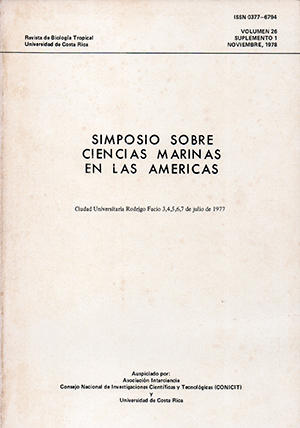Abstract
Potential acid sulfate soil in mangrove areas is generated by a combination of several chemical, microbiological, and physical processes. Acid is formed when the soils are disturbed during pond construction. A specific instance of acid development in the ponds of a penaeid shrimp aquafarm located in the coastal zone at Chomes, Puntarenas, Costa Rica, is presented. The known consequences on the operation of the ponds are analyzed; remedies and their ecological and economic cost are evaluated.
References
No reporta
##plugins.facebook.comentarios##

This work is licensed under a Creative Commons Attribution 4.0 International License.
Downloads
Download data is not yet available.


